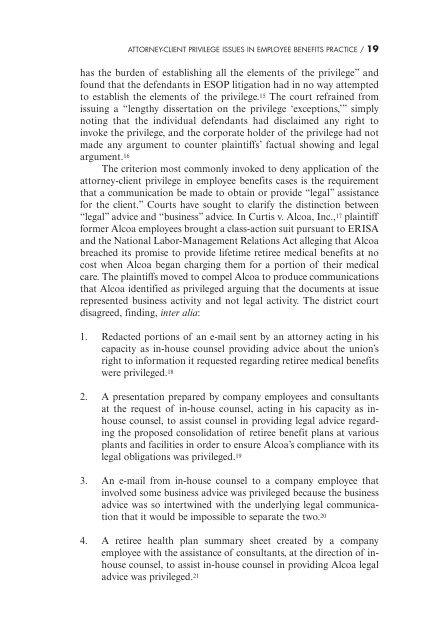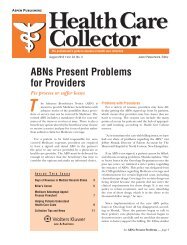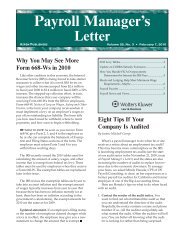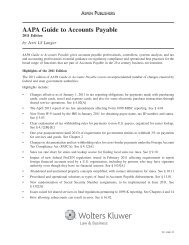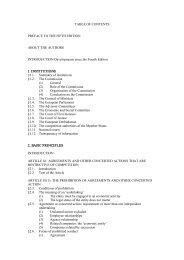journal of pension planning & compliance - Kluwer Law International
journal of pension planning & compliance - Kluwer Law International
journal of pension planning & compliance - Kluwer Law International
Create successful ePaper yourself
Turn your PDF publications into a flip-book with our unique Google optimized e-Paper software.
ATTORNEY-CLIENT PRIVILEGE ISSUES IN EMPLOYEE BENEFITS PRACTICE / 19<br />
has the burden <strong>of</strong> establishing all the elements <strong>of</strong> the privilege” and<br />
found that the defendants in ESOP litigation had in no way attempted<br />
to establish the elements <strong>of</strong> the privilege. 15 The court refrained from<br />
issuing a “lengthy dissertation on the privilege ‘exceptions,’” simply<br />
noting that the individual defendants had disclaimed any right to<br />
invoke the privilege, and the corporate holder <strong>of</strong> the privilege had not<br />
made any argument to counter plaintiffs’ factual showing and legal<br />
argument. 16<br />
The criterion most commonly invoked to deny application <strong>of</strong> the<br />
attorney-client privilege in employee benefits cases is the requirement<br />
that a communication be made to obtain or provide “legal” assistance<br />
for the client.” Courts have sought to clarify the distinction between<br />
“legal” advice and “business” advice. In Curtis v. Alcoa, Inc., 17 plaintiff<br />
former Alcoa employees brought a class-action suit pursuant to ERISA<br />
and the National Labor-Management Relations Act alleging that Alcoa<br />
breached its promise to provide lifetime retiree medical benefits at no<br />
cost when Alcoa began charging them for a portion <strong>of</strong> their medical<br />
care. The plaintiffs moved to compel Alcoa to produce communications<br />
that Alcoa identified as privileged arguing that the documents at issue<br />
represented business activity and not legal activity. The district court<br />
disagreed, finding, inter alia :<br />
1. Redacted portions <strong>of</strong> an e-mail sent by an attorney acting in his<br />
capacity as in-house counsel providing advice about the union’s<br />
right to information it requested regarding retiree medical benefits<br />
were privileged. 18<br />
2. A presentation prepared by company employees and consultants<br />
at the request <strong>of</strong> in-house counsel, acting in his capacity as inhouse<br />
counsel, to assist counsel in providing legal advice regarding<br />
the proposed consolidation <strong>of</strong> retiree benefit plans at various<br />
plants and facilities in order to ensure Alcoa’s <strong>compliance</strong> with its<br />
legal obligations was privileged. 19<br />
3. An e-mail from in-house counsel to a company employee that<br />
involved some business advice was privileged because the business<br />
advice was so intertwined with the underlying legal communication<br />
that it would be impossible to separate the two. 20<br />
4. A retiree health plan summary sheet created by a company<br />
employee with the assistance <strong>of</strong> consultants, at the direction <strong>of</strong> inhouse<br />
counsel, to assist in-house counsel in providing Alcoa legal<br />
advice was privileged. 21


